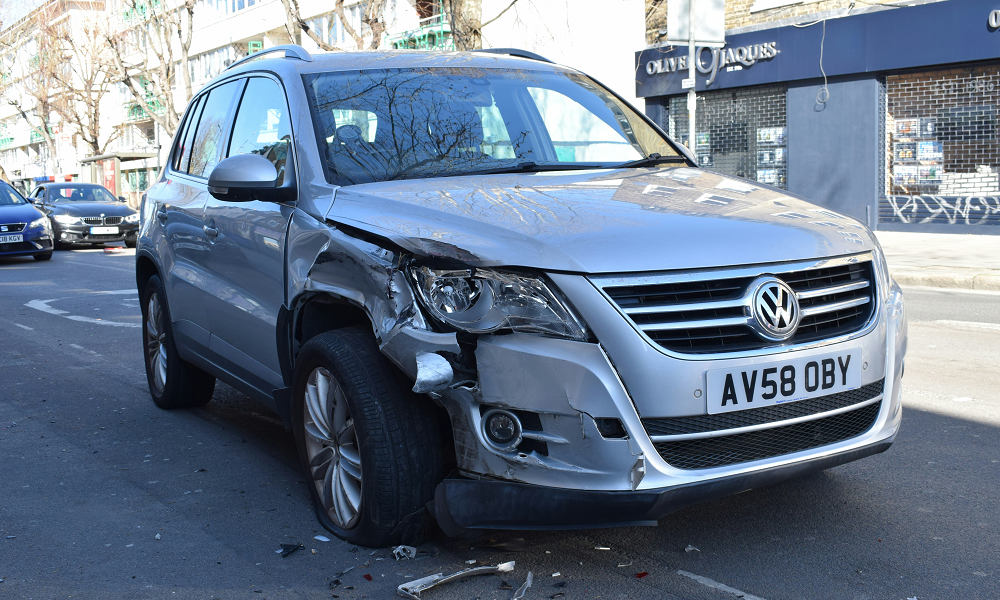Reviews
How to Prove Negligence in a Car Accident Claim

Proving negligence is critical in any car accident claim. Speeding, a major factor in California accidents, significantly contributes to injuries and fatalities, with drivers often failing to adhere to speed limits. Establishing fault in places like Yuba City requires evidence such as witness testimony, accident reconstruction, and police reports. Schedule a free case evaluation today to understand how to build a strong case and secure the compensation you deserve.
In this blog, we will take a look at how you can prove negligence in a car accident claim.
The Concept of Negligence
Neglect is the act of not taking care of oneself and causing harm to others, such as in car accidents. Proving neglect involves showing that a driver’s behavior led to the accident by not acting as needed. This necessitates proving that the driver had a responsibility to act properly, which was violated and resulted in damages.
Ensuring Responsibility of Care
Motorists have a responsibility to ensure the safety of everyone on the road, be it passengers in their vehicle or pedestrians and other drivers sharing the space with them. This responsibility encompasses following traffic regulations, staying in command of their vehicle at all times, and refraining from any actions that could put others at risk. Demonstrating the existence of this obligation is the initial phase in establishing negligence.
Exhibiting a Failure to Fulfill Responsibilities
When a driver doesn’t meet the expected standard of care on the road by speeding, getting distracted, or not yielding to others, that is considered a breach of duty. Things like traffic camera footage, witness accounts, or even admissions from the driver can prove this breach has taken place. Documentation such as photos from the accident spot and information from the police report can back up this argument.
Proving Causation
Merely demonstrating a failure to fulfill one’s duty is insufficient as it necessitates proving that such failure directly led to the incident and subsequent harm incurred by individuals involved in the situation. This requires establishing a correlation between the driver’s conduct and the unfolding of the accident event. Vital evidence can be derived from records, expert testimonies, and accident reconstruction assessments. It is crucial to establish a link between the breach of duty and the resulting harm in order to pursue a claim.
Recording the Extent of Harm Caused
When you file a negligence claim for damages like medical costs or lost income due to an accident or injury caused by someone’s carelessness or negligence, make sure you keep good records of everything involved to back up your case effectively. Gather all your bills and repair quotes if any property was damaged, along with proof of any work you missed due to the incident, to show the extent of your losses. Maintaining documentation and providing an overview of the damages can greatly bolster your case in such situations.
The Role of Evidence
Proof is essential in establishing negligence claims as it helps support the case through means such as photos from the scene of the incident, statements from witnesses, and police reports. Early collection of evidence is crucial as memories may fade over time, and physical proof can vanish. Gathering proof at an initial stage enhances the chances of a favorable claim outcome.
Exploring the Concept of Comparative Negligence
Sometimes, situations could take place where the blame for an accident is shared by both parties involved. Understanding how comparative negligence laws work in such cases is vital as it can impact how compensation is divided among the parties at fault and influence the approach to presenting the case.
Seeking Advice from Experts
It can be quite a task to navigate the intricacies of establishing negligence in a car accident case. Reaching out to experts for advice can be incredibly helpful in such situations. Lawyers specializing in injury cases can give you information on the legal procedures involved and help you collect evidence. They can also represent you in court if it comes to that, and their experience can greatly improve your chances of a favorable result.
Conclusion
In a car accident case, successfully arguing negligence entails grasping concepts and tactfully collecting and presenting proof of the incident. Claimants can bolster their arguments by showing the responsibility of care owed, indicating a violation occurred, linking it to the harm caused, and detailing losses suffered. Consulting with experts and grasping the nuances of shared fault regulations also boosts the chances of a resolution. Individuals can manage this procedure and pursue rightful compensation by taking a holistic approach.

-

 World1 week ago
World1 week agoEthiopian volcano erupts for first time in thousands of years
-

 Health2 days ago
Health2 days ago8 kittens die of H5N1 bird flu in the Netherlands
-

 Legal7 days ago
Legal7 days agoUtah Amber Alert: Jessika Francisco abducted by sex offender in Ogden
-

 US News6 days ago
US News6 days agoExplosion destroys home in Oakland, Maine; at least 1 injured
-

 Health7 days ago
Health7 days agoMexico’s September human bird flu case confirmed as H5N2
-

 Legal3 days ago
Legal3 days ago15 people shot, 4 killed, at birthday party in Stockton, California
-

 World7 days ago
World7 days agoWoman killed, man seriously injured in shark attack on Australia’s NSW coast
-

 Health6 days ago
Health6 days agoMarburg outbreak in Ethiopia rises to 12 cases and 8 deaths




